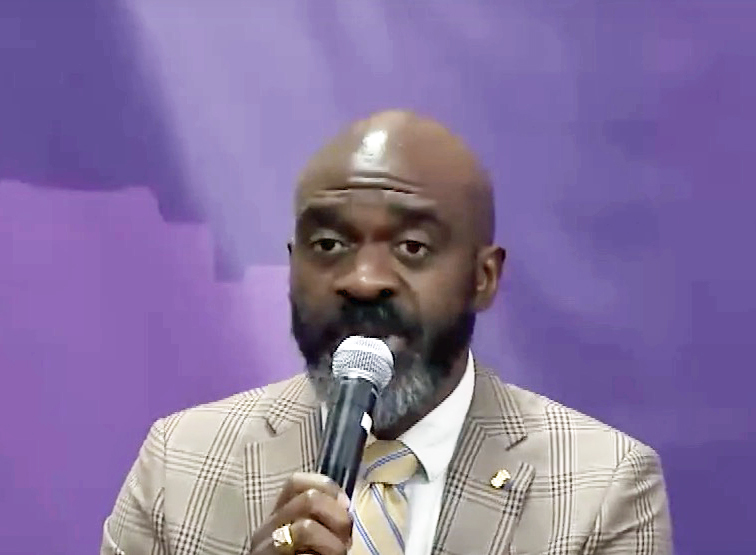Queens/Long Island Congress Member and admitted liar George Santos was hit with a second criminal indictment Tuesday, charging him with allegedly committing credit card and campaign finance fraud in the run-up to his election last year.
The freshman Republican lawmaker had been indicted back in May for allegedly committing fraud, money laundering, theft of public funds and lying to the House of Representatives on official paperwork. He was previously exposed last December, just before taking office as the 3rd District’s representative on Capitol Hill, in a damning New York Times story for lying about his background on the campaign trail.
Santos refused to resign the office to which he was elected, and again rebuffed calls to step aside following his May indictment. In true Trumpian fashion, he called his prosecution a “witch hunt.”
The new indictment announced on Oct. 10 — exactly five months after the first indictment was announced — accuses Santos of “stealing people’s identities and making charges on his own donors’ credit cards without their authorization,” according to U.S. Attorney of the Eastern District of New York Breon Peace.
The embattled lawmaker had also allegedly lied to the Federal Election Commission (FEC) and the public his own campaign financing, Peace reported.
“Santos falsely inflated the campaign’s reported receipts with non-existent loans and contributions that were either fabricated or stolen,” Peace said.
The Oct. 10 indictment comes days after Nancy Marks, former Santos campaign treasurer, pleaded guilty to federal charges of conspiracy to commit offense or defraud the United States. She faces a five-year prison sentence.

According to the charges, Santos and Marks allegedly worked together on an scheme to fraudulently obtain campaign funds from the Republican Party during the 2022 election cycle. In order to qualify for party campaign funds, Santos had to demonstrated that he had raised at least $250,000 from third-party contributors in a single quarter.
Instead of legitimately raising the funds, prosecutors said, Santos and Marks allegedly sent the FEC a phony report indicating that at least 10 family members “had made significant financial contributions to the campaign.” No such contributions had been made, nor did the family members give Santos and Marks their authorization for their personal information to be submitted in the FEC report.
Additionally, Santos and Marks allegedly indicated to the FEC that Santos had loaned “significant sums of money” to his own campaign. Though he claimed to have lent $500,000 to the campaign, the investigation found that Santos actually had less than $8,000 in his personal and business bank accounts.
Nonetheless, the phony financing reports to the FEC made Santos qualified to receive campaign funds from the GOP.
Ahead of congressional campaign, prosecutors charged that Santos allegedly engaged in credit card fraud as early as December 2021. He allegedly stole the personal and financial information of donors, and charged their credit cards without their authorization.
In one instance, according to the charges, Santos allegedly charged one contributor’s card to the tune of $44,800 in charges to his campaign. The vast majority of one fraudulent $12,000 contribution was sent right into Santos’ personal bank account, authorities said.
Santos is due back in court on Oct. 27.
Impact on speaker’s race?
The lawmaker was one of five New York Republicans to win House seats from Democrats in the 2022 election cycle, helping to give the GOP the chamber majority. He had helped Kevin McCarthy be elected Speaker of the House in the historic, 15-round vote that took place in January before he was sworn into office.
The latest Santos indictment comes at a tricky time in the House of Representatives. McCarthy was booted from the Speaker’s seat last week through a stunning, historic vote put forth by right-wing Republican rebels; Santos had voted against the measure.
Republicans are currently divided on who will succeed McCarthy as speaker. Santos’ vote will likely be important for the declared candidates, such as Jim Jordan of Ohio or Steve Scalise of Louisiana, as they seek to get to the 218-vote majority needed to win the speakership.
Still, Santos’ admission to lying following the New York Times report, and his indictment in May, made him something of a pariah even among Republicans.





































